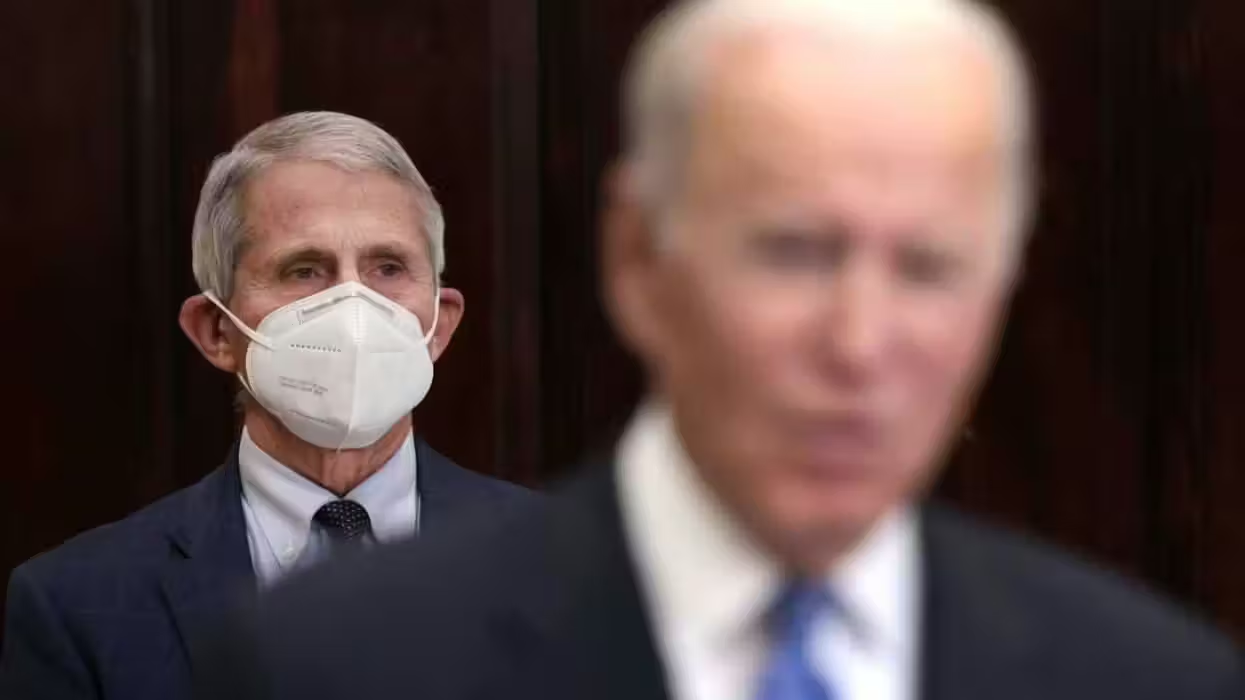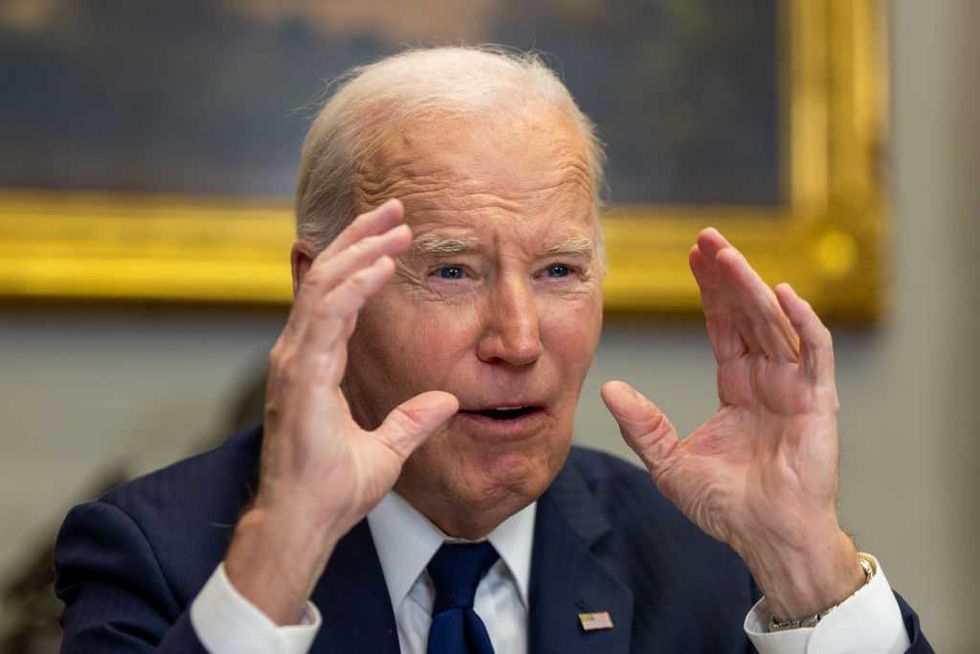
Photo by Anna Moneymaker/Getty Images

US pardon attorney Ed Martin suggests there would be 'serious difficulties' in defending the Biden-era pardons and commutations.
The campaign to throw out the Biden-era pardons for Anthony Fauci, retired Gen. Mark Milley, members of the Biden clan, former members of the House Jan. 6 select committee, and other controversial figures appears to be gaining momentum — and the Office of the Pardon Attorney made clear this week that it's onboard.
The House Oversight Committee alleged in its damning 100-page report on Tuesday that senior Biden staffers not only worked desperately to conceal the former president's rapid mental deterioration but usurped his authority with the help of the presidential autopen — a machine used to affix Biden's signature to a host of controversial executive actions and pardons.
'In theory, a court invalidation could result in restoration of penalties.'
"As President Biden was losing command of himself throughout his time in office, his executive actions — especially pardons, of which there are many — cannot all be deemed his own," said the report. "The authority to grant pardons is not provided to the president’s inner circle. Nor can it be delegated to particular staff when a president’s competency is in question."
Committee Chairman James Comer (R-Ky.) concluded that unauthorized executive actions signed by autopen were "null and void," then asked Attorney General Pam Bondi to review the validity of all executive actions taken during Biden's time in office.
Bondi confirmed on Tuesday that a review of the autopen use for pardons during the Biden era is underway.
Ed Martin, the U.S. pardon attorney at the DOJ, suggested in a letter on Monday to Comer that his investigation into the matter has turned up "disturbing findings" such that his office "cannot support the validity and ongoing legal effect of pardons and commutations issued during the Biden administration without further examination."
In the letter obtained by CNN, Martin suggested that Biden's admission to the New York Times that he "did not individually approve each name for the categorical pardons that applied to large numbers of people" by itself "seems to raise serious questions of whether those commutations are valid."
RELATED: Biden freed killers with a pen he didn’t even hold

Martin indicated that doubt over the validity of the commutations is further compounded by the suggestion in former Associate Deputy Attorney General Bradley Weinsheimer's communications with the Biden White House that the autopenned commutations issued on Jan. 17 in the former president's name were legally flawed.
The pardon attorney raised other "defects" concerning the pardon process, particularly in the final weeks of the administration.
"My office cannot support the validity of AutoPen pardons for individuals such as Anthony Fauci, Adam Schiff, Mark Milley, and many more without further examination and fact-finding," wrote Martin. "In my tenure here, I have not seen any evidence supporting the theory that President Biden was personally aware and authorized these AutoPen'd pardons."
Martin, who alluded to a court ultimately weighing in on the validity of the pardons, told Comer, "If these pardons or commutations are challenged in any way, I recognize serious difficulties in defending them."
The Oversight Committee similarly foreshadowed a court voiding the pardons in its report, stating that "the Constitution is clear: 'The President shall ... have Power to grant Reprieves and Pardons for Offences against the United States.'"
The committee further quoted from a recent essay by constitutional scholar Philip Hamburger, a professor at Columbia Law School, which concluded, "The history confirms that the Constitution’s location of the pardon power is significant. The president must make the decisions, and the courts can hold pardons void if the decisions are made by others."
While the nullification campaign's success in the courts could spell disaster for Fauci, Milley, and others, some scholars have cast doubt on the likelihood of that outcome.
When asked whether the pardonees' convictions and legal vulnerabilities would be fully restored should their pardons be ruled invalid, Jeremy Paul, a professor of law at Northeastern University School of Law, told Blaze News, "In theory, a court invalidation could result in restoration of penalties. I see this as extremely unlikely."
"If the DOJ attempted to impose punishment upon the affected individuals, the individuals would raise the pardons as a defense in federal court," continued Paul. "Lower courts would issue rulings. The case could end up in the Supreme Court but that Court would not be required to hear the case."
Paul expressed doubt about whether the pardons could be invalidated in the first place, stating, "Unless evidence emerges that DOJ officials granted pardons in express opposition to President Biden's wishes, which seems highly unlikely, I cannot see any basis on which pardons could be deemed invalid."
Bernadette Meyler, a Stanford Law School professor, suggested to CNN that one way to go about trying to void a pardon would be for Attorney General Bondi to "sue for a declaratory judgment that the pardons were invalid because of some form of impropriety in the signing of them, or in the giving of the pardon."
Blaze News has reached out to the Office of the Pardon Attorney for comment.
Like Blaze News? Bypass the censors, sign up for our newsletters, and get stories like this direct to your inbox. Sign up here!